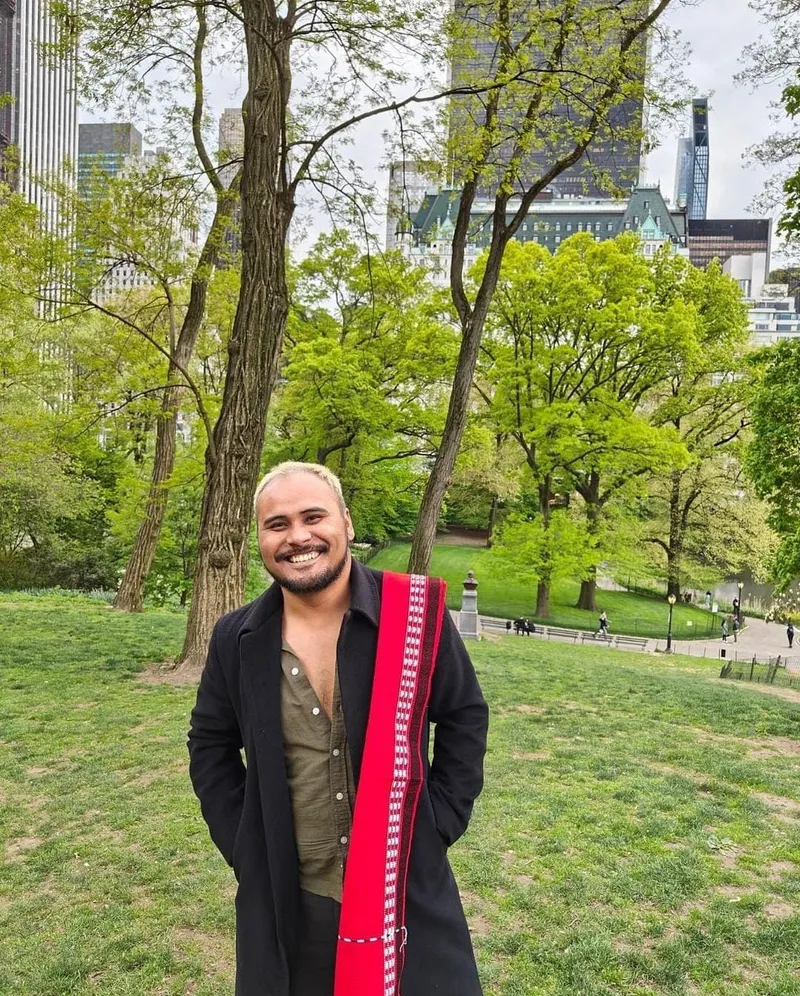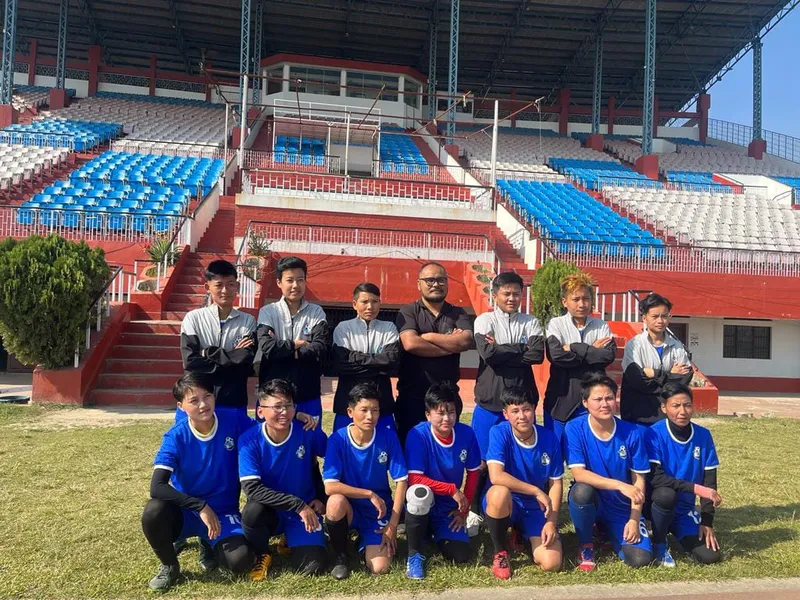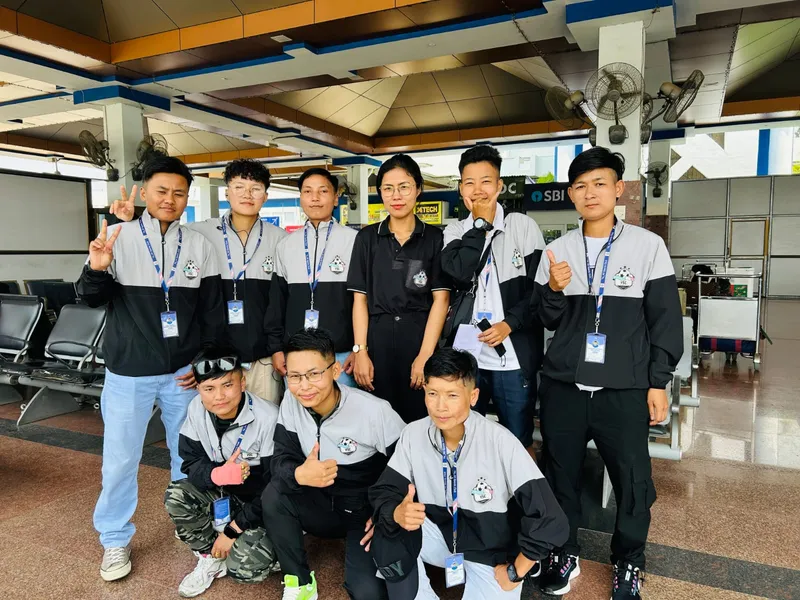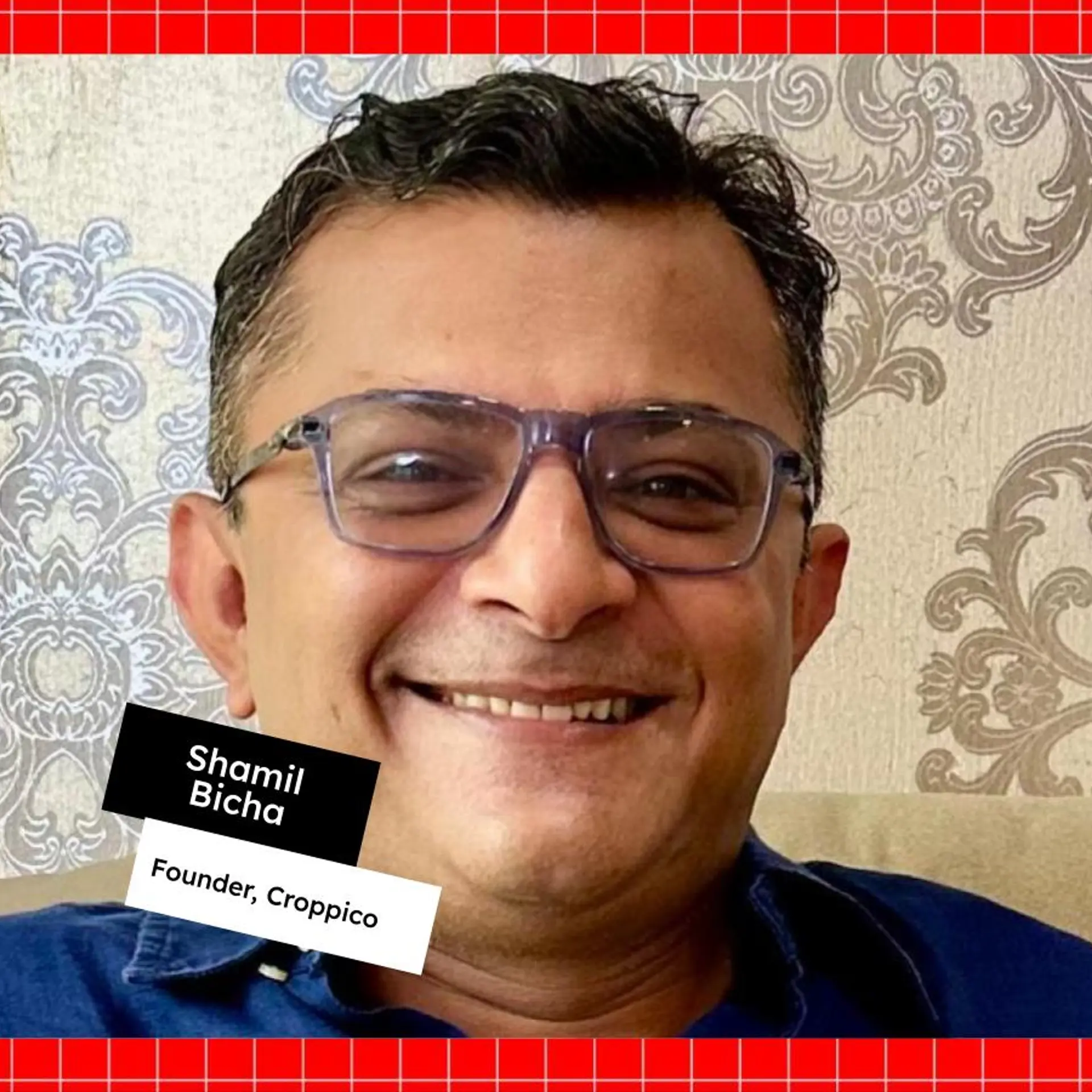Bend it like Beckham: This transmen football team is breaking stereotypes, one goal at a time
The transmen football team by Ya_All, an LGBTQI+ youth-led organisation in Imphal, Manipur, is creating a safe space for the community while fostering inclusion in sports.
Since childhood, Jen Ningthoujam, who identifies as a transman, preferred keeping his hair short and wearing men’s clothes. However, he would often be forced to wear traditional women's dress, the phanek, at weddings near his village of Kongpal Khaidem Leikai in Manipur.
Yaiphabi Sanasam too always felt comfortable wearing his brother’s clothes, which gave him a sense of normalcy in being true to himself.
“I wore what I wanted and kept my hair the way I liked because it was my choice. Thankfully, my family has been incredibly supportive,” the 33-year-old from Manipur tells SocialStory.
Both Jen and Yaiphabi are part of India’s inaugural 15-member all-transmen football team. The close-knit community acts as a support system and helps the teammates understand themselves a little better.
“In that environment, surrounded by supportive teammates and colleagues, I started to find clarity about who I truly am,” Yaiphabi explains.
The football team is an initiative of Ya_All, a UN-recognised LGBTQI+ youth-led organisation operating in Imphal, Manipur. Every year the organisation organises Queer Games in the pride month for the LGBTQI community.
“Many cities do Pride events for mainstream visibility but we cannot do those because of high moral policing in the region. The community needed a safe space to express themselves so we thought about sports as a medium for promoting queer visibility,” Ya_All Founder Sadam Hanjabam, a human rights advocate, tells SocialStory.
“Manipur is known to be a powerhouse of sports so we thought we should find our expression in what we are known for and tell the world we exist,” he adds.
A step towards inclusivity

Sadam Hanjabam
Founded in 2017, Ya_All promotes LGBTQIA+ inclusion in India through sports, mental health initiatives, and advocacy. It offers free services for young people, including those from LGBTQI+ communities, people living with HIV, and those with psychosocial disabilities.
Sadam started the organisation as a small support group on WhatsApp for LGBTQIA+ people from the region. In 2019, it was registered as an organisation.
The idea of using sports as a community-building tool came to Sadam when he attended the Yaoshang Festival, often referred to as the ‘Holi of Manipur’, in 2018. It is a five-day festival which hosts many sporting events. He realised sports as a platform to introduce LGBTQIA+ players and start the conversation around inclusion.
“Football is an emotion for people and it goes beyond identity,” he adds.
In 2020, the organisation formally introduced the first all-transgender team. Initially, it included other sports but now it focuses on football alone.
“This trans team has become a platform where young queer people gather, find a safe space to grow and move forward in their life,” he says.
The team actively competes against other schools and local organisations, including both men’s and women’s teams, with the aim of raising awareness and promoting inclusivity in football. It doesn’t have a coach as most players are certified trainers who share their expertise and lead practice sessions collaboratively.
Football as therapy
A certified football coach, Jen had to hide in the closet and couldn’t even tell his family about his trans identity. He even joined a Delhi school as a woman coach as he was scared of losing his job.
When Section 377, which penalised non-heterosexual intimacy, was decriminalised, Jen built the courage to come out to his family, however, it didn’t sit well with them.
Through this turmoil, football became his support system. He was also shortlisted for a coaching position at Sports Authority of India in the “others” gender category.
The 30-year-old believes that being part of the Ya_All team since 2021 has significantly aided him in coming out and owning his true identity.
“It is not just a team but a haven where we share our common experiences and mental trauma and help each other,” adds Jen, who also works as a sports teacher at National Sports University in Manipur.

India’s inaugural all-transmen football team
Yaiphabi too recalls the time when he could not continue playing football because of financial constraints. He says it is because of the transmen football team that he felt he has got a second chance at the game.
“For me football is everything. This team is an important part of my life now. I could not get proper training at a young age but I want to train the younger generation so they do not miss out on any opportunities like I did,” he says.
Today, Yaiphabi works as a coordinator in Ya_All and also plays in the trans football team.
Breaking boundaries
Recently, Ya_All addressed the challenges faced by children in conflict-ridden Manipur through their initiative, ‘Football for Heal, Football for Peace’. The trans men’s football team offered free coaching to children living in shelter camps to provide them with a medium to heal and come out of the traumatic conditions caused by the conflict.
“It was an opportunity for us to break the stigma and prove our value to the society. We feel proud for being able to help those children,” Jen shares.
Talking about the future, Sadam emphasises that though the country has education scholarships for the trans community, there is no significant recognition in sports. He wishes the community gets an equal share of opportunities and resources.
“Although now homosexuality is no longer a criminal offence, we are still not completely free. But I hope this will change in the future but till then we will continue our fight,” he adds.

The team actively competes against other schools and local organisations to raise awarness
In the same vein, Jen emphasises the need for more trans men players and expresses a desire to establish additional teams to have fair competitions.
Yaiphabi says football serves a greater purpose than just being a sport; it helps one understand themselves better.
“Many people struggle to understand themselves fully, but being part of this community has allowed me to embrace my identity more confidently. It has helped me in leading a better life.”
For Jen, family acceptance was slow but firm. His life came full circle after returning to his hometown when he attended a friend's wedding. For the first time, he boldly donned a dhoti instead of the traditional women's outfit.
“I felt powerful, empowered, and happy for myself,” he adds.
Edited by Megha Reddy








